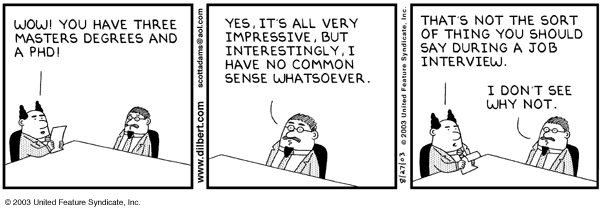 ‘Tis the time of year when new graduates are starting to freshly scan the arts jobs horizon! I’ve just updated this site’s jobs listings (check out all the seasonal positions now open with Dublin Theatre Festival, folks) and have been fielding many emails, chats and cups of coffee over the past few weeks for folks on the job hunt (and employers looking for a few good men or women).
‘Tis the time of year when new graduates are starting to freshly scan the arts jobs horizon! I’ve just updated this site’s jobs listings (check out all the seasonal positions now open with Dublin Theatre Festival, folks) and have been fielding many emails, chats and cups of coffee over the past few weeks for folks on the job hunt (and employers looking for a few good men or women).
This morning the Guardian Culture Professionals Network posted a short piece by an arts management lecturer at Birkbeck asking What skills do arts sector grads need to develop their career? — and suggesting ways they have modified their university programme to respond:
The first was a physical space for reflection. The cultural sector is an amazing and exciting place to work because of the various types of roles and jobs available across so many different artforms. But such an array of opportunities can also be daunting when a fresh graduate is trying to find a way in. As a result we developed a series of workshops organised around guest lectures and practical exercises to provide students with the opportunity to think and work through what it means to be successful or how to deal with failure. It sounds conceptual, but it’s invaluable in a sector rife with overnight success stories and constant rejection that can often feel more personal than professional.
The second thing students wanted was experience: somewhere to practice what they felt were essential skills needed to obtain work in the sector. These skills ranged from how to put together a 10-minute pitch to knowing what your employment rights were if you were commissioned for a project or self-employed. On this front we invited sector professionals with relevant experience to speak to students about how to maintain a portfolio career and how to pitch. These talks offered them a chance to link what they had learned in class to practice in the field.
We’re constantly modifying our own MA in Arts Management programme here at UCD, so it made for an interesting read, with a few new ideas (and I’m looking forward to our annual feedback from the students, which is taken very seriously & is always useful!)
It also made me think – what advice do I give folks on the job market? Some of my general job-seeking tips are listed on the FAQ, but here are few other skills and attributes that (in my view) have helped folks find the arts sector work they’re looking for:
Be persistent. Even graduates with newly-minted postgraduate degrees, and significant experience, often have trouble finding that first foothold. It’s seldom easier for folks looking to transition at mid and higher level, as our small island is notorious for job stagnancy and mobility problems. Often times public sector jobs are advertised for tiny windows of time, or hiring is still done through networks rather than open advertisement. Let your friends and extended network know that you’re actively looking, and give as much time as you can to scan for opportunities.
Be flexible. In a sector now heavily populated by freelance and portfolio careers, finding the right combination of job, location, and compensation can be challenging. Consider the possibility of combining work from various sectors (working in marketing for both arts and commercial clients, for example). Have a look at analogous sectors that may be eager to hire someone with your skills (NGOs/charities, universities and school administration, the civil service/local authorities, etc.). If you’re flexible with geography, seize the opportunity to work overseas (in the US, UK, Europe, Canada, Australia). It’s of tremendous benefit to experience how different arts sectors work, and will forever alter your own view of how your professional life can or might evolve.
Be confident (but humble). Enthusiasm, passion for the arts and a strong sense of self make for an inspiring employee or co-worker, but the capacity to learn quickly, and willingness to take on anything that needs doing, are essential skills.
Be respectful. Keep in mind employers often receive dozens and dozens of CVs for a single position – many of which are from folks totally unqualified for the position, or who haven’t bothered to fully read the job description. Don’t be that person. Make sure your CV is well designed and attractive, proofread, has all the relevant details, and is easy to read — it’s not always necessary to keep it down to a page, but it’s the first professional impression you make, so give it time and attention. Sounds obvious, but you’d be surprised how poorly folks in the arts often represent themselves in this medium!
Take heart. You’re not alone if you’ve sent out dozens of applications with no joy; or if you’ve had to take a place-holding job to pay the bills; or felt the stress of multiple unpaid internships with few future prospects; or felt frustrated with the difficulties of finding a paid job that will reasonably support you and your family. I’ve made a few suggestions here on how to get out of a job-seeking rut — but the best advice can be simply to talk to someone else: share your experience, ask for feedback (and take it seriously), and find a few kindred spirits with whom you can openly and unreservedly discuss your aspirations and worries.
Any other constructive hints for job-seekers in the Irish arts sector would be most welcome!